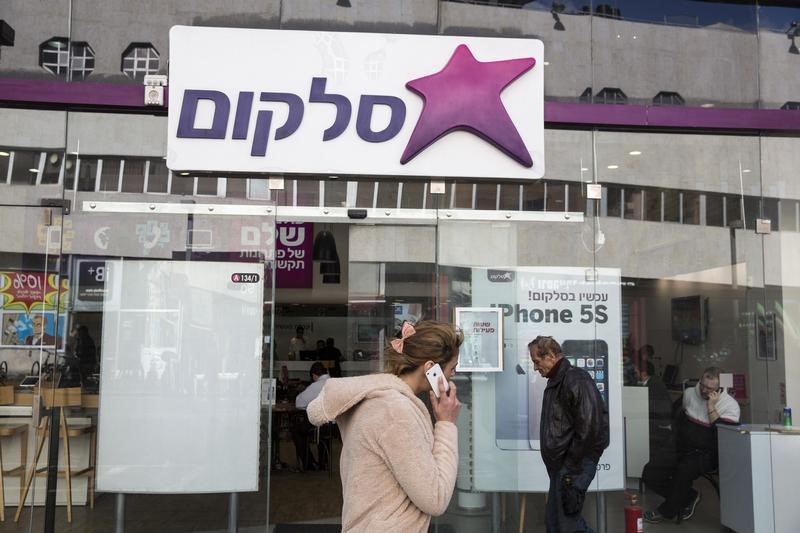TEL AVIV (Reuters) - Israel's antitrust watchdog and the Communications Ministry have opposed Cellcom's (TA:CEL) plan to buy smaller mobile rival Golan Telecom, paving the way for the possibility that Golan will seek a different buyer.
Cellcom, Israel's largest mobile phone operator, said on Tuesday that it had not yet been given reasons for the decision, but would consider its options when it gets them.
Cellcom agreed to buy Golan for 1.17 billion shekels ($305 million) last November but the deal has faced political opposition and regulatory hurdles.
One of five mobile network operators in Israel, Golan launched in 2012 when the government issued new licensee to boost competition in a sector that had been dominated until then by three players.
Golan offered rock-bottom prices that its competitors have struggled to meet and has taken about 10 percent of Israel's mobile market.
Golan, owned by French businessmen Michael Golan and Xavier Niel, has said rejecting the deal would have a negative impact on the market and cause prices to rise.
But Finance Minister Moshe Kahlon, who was responsible for opening up the cellular market as communications minister, fears that losing one player would reduce competition and lead to higher prices.
Citi analyst Michael Klahr, noting that regulators and politicians have stated they want the market to remain a five player market, said the most likely scenario is one where Golan's owners sell to a third party that will invest in building a network.
"We continue to see high levels of competitive intensity in Israeli mobile for the foreseeable future," said Klahr, who rates both Cellcom and its biggest rival Partner Communications (O:PTNR) "neutral".
In early trading in New York, Cellcom's shares were down 1.4 percent at $7.23.
Consumers give Golan much credit for offering packages that include unlimited international and local calling, text messages and 6 GB of Internet surfing starting at $8 a month. Such prices have dented the profitability of Cellcom and its rivals.
As part of its license, Golan is required to enter into a network-sharing agreement with Cellcom or build its own.
Earlier this year, Niel said Golan had no choice but to merge with another player since a plan to share Cellcom's network was not approved by regulators while municipalities in Israel refused to approve the installation of more antennas.
